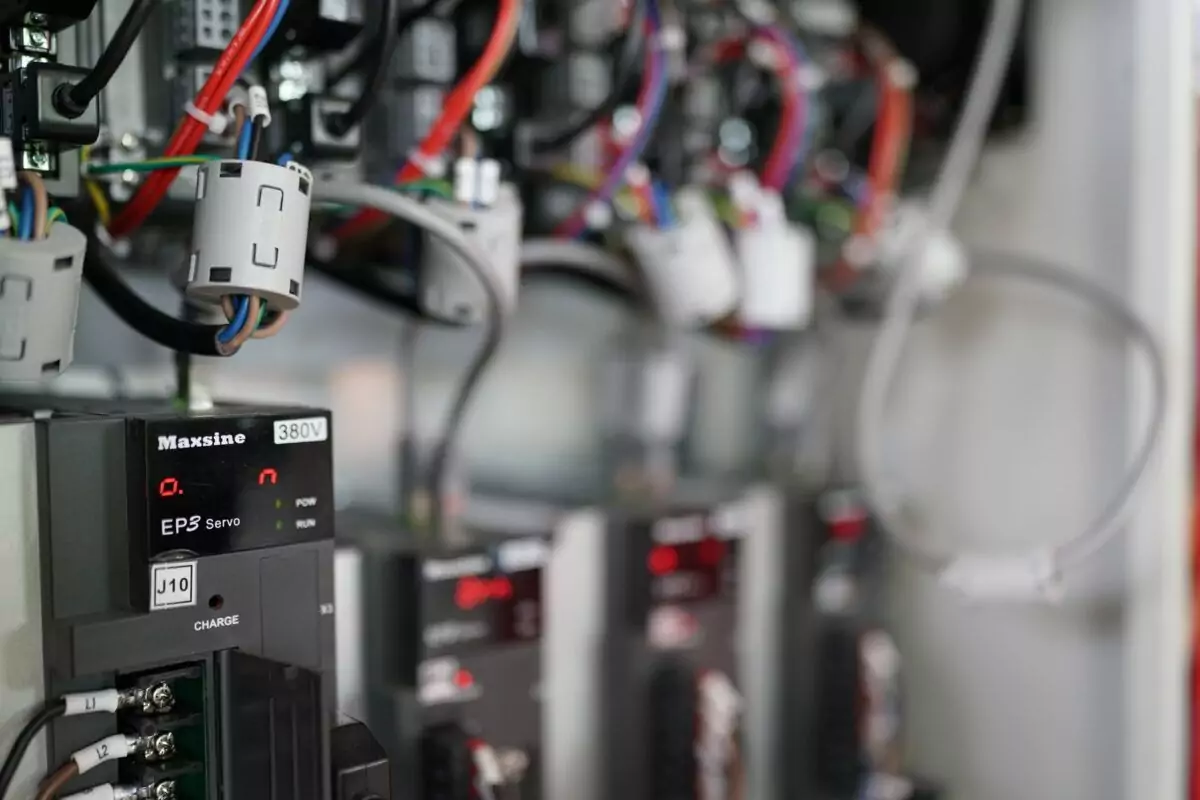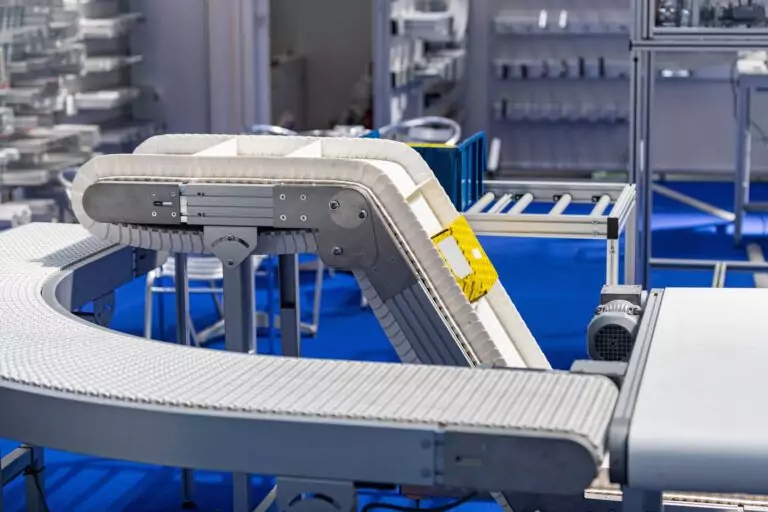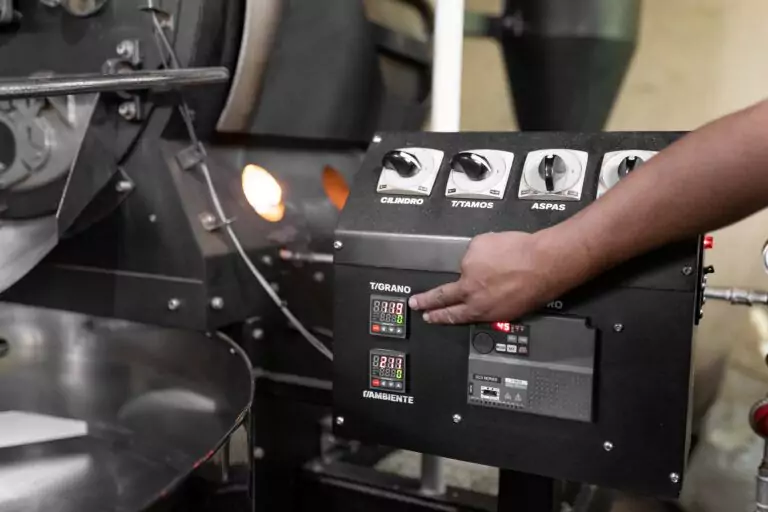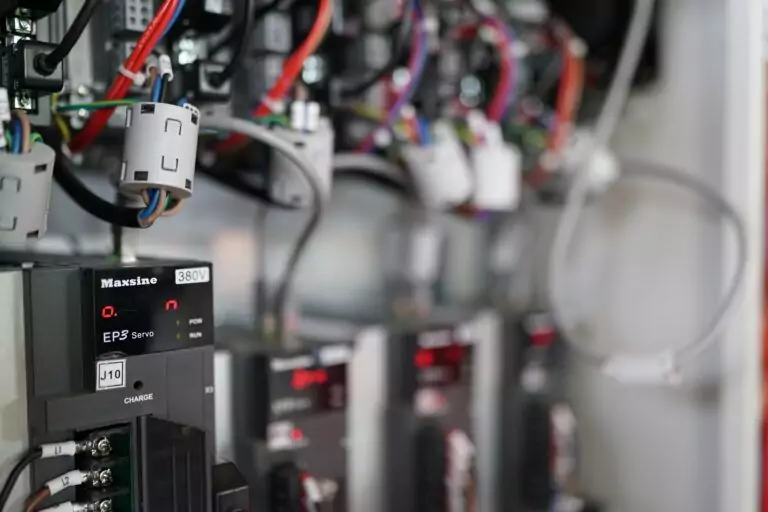In the intricate world of industrial automation and electrical engineering, choosing the right Programmable Logic Controller (PLC) can be a game-changer. These nifty devices are the unsung heroes behind the seamless operation of machinery and processes, driving efficiency, safety, and innovation. But with a plethora of brands on the market, each boasting unique features and strengths, how do you zero in on the perfect fit for your needs?
Whether it’s Siemens’ cutting-edge engineering tools, Rockwell Automation’s user-friendly interface, Mitsubishi Electric’s compact designs, Schneider Electric’s IoT capabilities, or Omron’s focus on safety, the choice can be overwhelming. This article dives deep into the world of PLCs, exploring why they’re indispensable in automation, what criteria to consider when choosing a brand, and a closer look at the leading players in the field. So, buckle up as we embark on a journey to demystify PLC brands, helping you make an informed decision that aligns with your industrial automation goals—with insights shaped by PLC integration specialists and engineering professionals alike.
Why are PLCs Crucial in Automation?
Programmable Logic Controllers (PLCs) are fundamental components in the realm of automation, serving as the backbone for countless industrial and manufacturing processes. The crucial role of PLCs in automation stems from their ability to provide precision, flexibility, and reliability in controlling machinery and processes. Designed to perform a wide range of control tasks with high accuracy and efficiency, PLCs can be reprogrammed and adapted to different tasks, making them indispensable in industries where conditions and requirements frequently change.
At the heart of their importance is the ability of PLCs to enhance productivity. By automating repetitive tasks, PLCs enable faster production rates, more consistent quality, and reduced human error. This improvement in efficiency and output directly impacts a company’s bottom line, making PLCs a key driver of competitive advantage in today’s fast-paced market environments.
Moreover, PLCs contribute to safety and energy efficiency. They can monitor and control processes to ensure they operate within safe parameters, reducing the risk of accidents and protecting workers. Additionally, by optimizing operations, PLCs can lead to significant energy savings, contributing to more sustainable manufacturing practices.
The adaptability of PLCs is another reason for their critical role in automation. With the ability to integrate with other technologies and systems, PLCs are at the forefront of advancements in the Industrial Internet of Things (IIoT) and smart manufacturing. This evolution is being accelerated by leading industrial automation engineering firms, which help ensure PLC systems are designed for seamless connectivity and future-proof performance.
In summary, PLCs are crucial in automation for their role in enhancing productivity, ensuring safety, promoting energy efficiency, and providing the adaptability needed to keep pace with technological advancements. Their impact on industrial and manufacturing processes is profound, underscoring their importance in the modern automated world.
Criteria for Choosing a PLC Brand
Selecting the right PLC brand for industrial automation involves considering several key criteria to ensure optimal performance, compatibility, and cost-effectiveness. These criteria collectively guide businesses in choosing a PLC brand that aligns with their specific automation needs and objectives.
Reliability and Durability
Prioritizing reliability and durability is essential when selecting a PLC brand. Industrial environments demand that PLCs withstand extreme conditions while maintaining operational integrity, ensuring minimal downtime and prolonged service life.
Scalability and Flexibility
Scalability and flexibility are crucial for future-proofing automation systems. The ideal PLC should support growth and adapt to new technologies or processes, allowing businesses to expand or modify their operations without the need for a complete system overhaul.
Support and Global Service Network
A robust support and global service network guarantees that technical assistance and spare parts are readily available, minimizing operational disruptions. This global presence is particularly vital for multinational operations, providing assurance regardless of the facility’s location.
Compatibility with Industry Standards
Ensuring compatibility with industry standards simplifies integration with existing and future systems. A PLC that adheres to widely accepted protocols and interfaces eases connectivity with other equipment, streamlining the implementation and expansion of automation solutions—especially when handled by a seasoned PLC programming services firm.
Initial and Long-term Costs
Assessing initial and long-term costs is critical for a cost-effective investment. This assessment should consider not only the purchase price but also installation, maintenance, and potential upgrades. Opting for a PLC that offers a lower total cost of ownershipThe total cost of ownership refers to the total cost of owning an industrial asset throughout its full lifecycle, from design and construc... over its lifecycle represents a financially sound decision.
Leading PLC Brands Overview
In the realm of industrial automation, several PLC brands stand out for their innovation, reliability, and global presence. These brands collectively embody the pinnacle of PLC technology, offering scalable and flexible solutions that meet the diverse requirements of modern industrial automation.
Siemens
Siemens PLCs are celebrated for their advanced engineering tools and diverse model range, catering to both simple and complex automation needs. Their global support network ensures reliability and accessibility for industries worldwide, making them a top choice for comprehensive automation solutions.
Rockwell Automation (Allen-Bradley)
Rockwell Automation, with its Allen-Bradley line of PLCs, dominates the North American market. They are renowned for their user-friendly programming environments and a broad partner ecosystem, offering solutions that are both powerful and easy to integrate across various industries.
Mitsubishi Electric
Mitsubishi Electric is recognized for providing affordable, high-performance PLC options. Their products are known for their compact, space-saving designs, making them ideal for applications where space is at a premium, especially favoured in the Asia-Pacific market for their efficiency and reliability.
Schneider Electric
Schneider Electric’s PLCs, integral to their EcoStruxure automation platform, emphasize IoT integration and sustainability. With wide protocol compatibility, these PLCs are designed to meet the evolving needs of energy-conscious and technologically advanced industries.
Omron
Omron is distinguished by its focus on safety and quality, featuring PLCs with intuitive user interfaces and advanced sensing and control technology. Their strong commitment to innovation and R&D positions them as a leader in developing cutting-edge automation solutions.
Siemens PLC Advantages
Siemens PLCs stand out in the industrial automation landscape for their cutting-edge engineering tools, which facilitate sophisticated design and customization capabilities. These advantages make Siemens PLCs a preferred choice for businesses seeking reliable, adaptable, and well-supported automation solutions.
Cutting-edge Engineering Tools
Siemens PLCs are renowned for their cutting-edge engineering tools, offering unparalleled precision control and customization capabilities. These tools allow for the development of highly optimized and tailored automation solutions, meeting the specific needs of diverse industrial applications.
Comprehensive Model Range
With a comprehensive model range, Siemens PLCs cater to a wide array of applications, from straightforward machine controls to intricate system integrations. This extensive selection ensures scalability and flexibility, making Siemens a versatile choice for various industries.
Extensive Global Support
The extensive global support network of Siemens ensures that immediate assistance and maintenance services are available worldwide. This global presence guarantees minimal operational downtime and maximized efficiency, providing reliable support for businesses utilizing Siemens automation solutions.
Rockwell Automation Strengths
Rockwell Automation, particularly through its Allen-Bradley line, excels in the North American market with its dominance and user-friendly programming tools. This ecosystem not only supports a broad range of applications but also fosters innovation through collaboration. The combination of easy-to-use software and a strong partnership network positions Rockwell Automation as a leading choice for industrial automation solutions.
Dominance in North American Market
Rockwell Automation secures its dominance in the North American market with a robust presence and an in-depth understanding of the industrial requirements specific to this region, establishing it as the go-to choice for automation solutions.
User-friendly Programming Tools
Renowned for its user-friendly programming tools, Rockwell Automation simplifies the complexity of automation tasks. These tools are intuitively designed to boost accessibility and operational efficiency for engineers and technicians alike, facilitating smoother project execution.
Wide-reaching Partner Ecosystem
With a wide-reaching partner ecosystem, Rockwell Automation leverages a comprehensive network of compatible products and services. This expansive ecosystem not only caters to a vast array of applications but also fosters innovation, ensuring that industrial enterprises have access to holistic solutions that meet their dynamic needs.
Mitsubishi Electric Benefits
Mitsubishi Electric distinguishes itself in the industrial automation sector with its affordable, high-performance PLC options. Mitsubishi Electric’s PLCs are tailored to meet the needs of a broad range of industries, offering solutions that combine cost-effectiveness with advanced technological capabilities. This makes Mitsubishi Electric a compelling choice for businesses looking to optimize their automation systems without compromising on quality or performance.
Affordable, High-performance Options
Mitsubishi Electric is recognized for its affordable, high-performance PLC options, which enable businesses to pursue sophisticated automation goals without overextending their budgets. These cost-effective solutions deliver exceptional quality and advanced capabilities.
Compact, Space-saving Designs
The compact, space-saving designs of Mitsubishi Electric’s PLCs are ideal for installations where space is at a premium. Despite their small footprint, these PLCs do not compromise on performance, offering full functionality in a compact package.
Strong Presence in Asia-Pacific
With a strong presence in the Asia-Pacific region, Mitsubishi Electric has established itself as a key player, deeply attuned to the specific needs and challenges of these markets. This regional expertise translates into tailored solutions and support for businesses operating in Asia-Pacific, ensuring their automation systems are both efficient and effective.
Schneider Electric Features
Schneider Electric is distinguished in the field of industrial automation by its EcoStruxure platform, which emphasizes IoT integration and sustainability. These features position Schneider Electric as a forward-thinking leader in automation, providing solutions that not only enhance operational efficiency but also contribute to a more sustainable future.
EcoStruxure for IoT Integration
Schneider Electric’s EcoStruxure platform excels in IoT integration, enabling intelligent, connected solutions that drive operational efficiency and cost reduction. This platform leverages advanced analytics and real-time monitoring to optimize industrial processes.
Wide Protocol Compatibility
Offering wide protocol compatibility, Schneider Electric ensures effortless communication and integration across a broad spectrum of devices and systems. This compatibility fosters a cohesive and efficient automation ecosystem.
Emphasis on Sustainability
A strong emphasis on sustainability characterizes Schneider Electric’s approach to PLC solutions, focusing on energy-efficient operations and minimizing environmental impact. This commitment aligns with global efforts to achieve sustainability objectives in industrial practices.
Omron’s Unique Offerings
Omron sets itself apart in the industrial automation market with its focus on safety and quality, integrating advanced sensing and control technology into its PLCs. These unique offerings make Omron a preferred choice for businesses seeking cutting-edge automation solutions that prioritize safety, efficiency, and user experience.
Specialization in Safety and Quality
Omron excels with a specialization in safety and quality, embedding cutting-edge technologies and stringent standards to ensure unparalleled reliability and performance in their PLC offerings.
Intuitive User Interfaces
The brand is known for its intuitive user interfaces, making complex automation tasks more manageable and enhancing operational efficiency, thereby democratizing access to sophisticated control systems.
Commitment to Innovation and R&D
A steadfast commitment to innovation and R&D positions Omron at the forefront of the automation industry, driving the development of forward-thinking solutions that anticipate and address the dynamic challenges of modern industries.
Advanced Sensing and Control Technology
Omron’s PLCs are equipped with advanced sensing and control technology, delivering unmatched precision and responsiveness. This technology underpins more effective and dependable automation systems across a broad spectrum of industrial applications.
Factors Affecting PLC Choice
Selecting the right PLC for industrial automation projects involves considering a range of factors that can significantly impact system performance and integration. These factors together guide the selection process, ensuring the chosen PLC aligns with both current needs and future growth—especially when advised by an electrical control systems expert who understands both legacy and future-facing integration requirements.
Industry-specific Requirements
Industry-specific requirements critically influence PLC selection, as each sector demands distinct control capabilities, processing speeds, and functionalities. A PLC must be chosen with these specific needs in mind to ensure optimal performance in targeted applications.
Environmental Conditions
The environmental conditions under which a PLC will operate—such as extreme temperatures, humidity, or exposure to corrosive substances—play a decisive role in selection. Ensuring the PLC’s robustness under these conditions is paramount for reliable operation.
Future Expansion Plans
Future expansion plans need careful consideration during PLC selection. The ideal PLC system should offer both scalability and flexibility, allowing for future growth and technological updates without necessitating an entire system overhaul.
Integration with Other Systems
Integration with other systems is crucial, highlighting the importance of choosing a PLC that can seamlessly connect and communicate within a larger automation ecosystem. This ensures efficient interoperability and data exchange between various technologies and platforms.
Future Trends in PLC Technology
The landscape of PLC technology is evolving rapidly, with several key trends shaping its future. Increased IoT connectivity is at the forefront, enabling PLCs to communicate more effectively with a wider network of devices and systems, enhancing data collection and analysis for improved decision-making. Enhanced cybersecurity features are becoming essential, as the integration of PLCs with the internet and other networks exposes them to cyber threats, necessitating robust security measures to protect sensitive data and operational integrity.
Greater use of artificial intelligence (AI) is transforming PLC functionality, allowing for more sophisticated data processing and automation capabilities that can predict maintenance needs and optimize processes in real-time. Lastly, the adoption of wireless communication within PLC systems is expected to increase, offering more flexibility in terms of installation and operation, and reducing the reliance on traditional wired connections. These trends indicate a future where PLC technology is more connected, secure, intelligent, and adaptable, driving efficiency and innovation in industrial automation.
Increased IoT Connectivity
Increased IoT connectivity is revolutionizing PLC systems, allowing for seamless integration with an extensive network of devices and systems. This enhanced connectivity facilitates superior data exchange and analysis, leading to smarter decision-making and increased operational efficiency.
Enhanced Cybersecurity Features
With PLCs becoming increasingly interconnected, enhanced cybersecurity features are paramount to protect sensitive data and ensure system integrity. Robust security protocols and measures are essential to defend against evolving cyber threats, securing automation processes from potential vulnerabilities.
Greater Use of Artificial Intelligence
Greater use of artificial intelligence (AI) within PLCs is transforming their capabilities, enabling sophisticated data processing and automation. AI technologies allow for predictive maintenance, optimization of processes, and real-time adjustments, significantly elevating the performance and efficiency of automated systems.
Adoption of Wireless Communication
The adoption of wireless communication technologies in PLC systems marks a shift towards more flexible and efficient automation solutions. Wireless connectivity offers easier system installation and reconfiguration, reducing dependency on traditional wired networks and enhancing the scalability and adaptability of automation infrastructures.
Powering Precision Through the Right PLC
Choosing the best PLC brand is about more than specs—it’s about aligning reliability, scalability, and innovation with your industry’s needs. From Siemens’ engineering depth to Omron’s safety focus, each brand brings unique strengths to industrial automation. Factoring in environment, integration, and future growth ensures your system performs today and scales tomorrow.
At Vista Projects, we help clients navigate PLC selection and system integration with a truth-based engineering approach that balances performance, cost, and future readiness.
Let’s build smarter control systems together—contact Vista Projects to start your automation journey.









